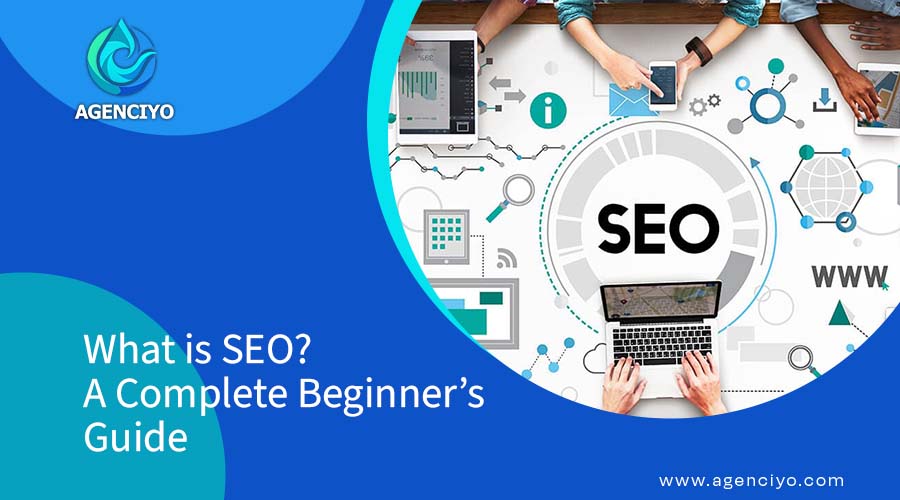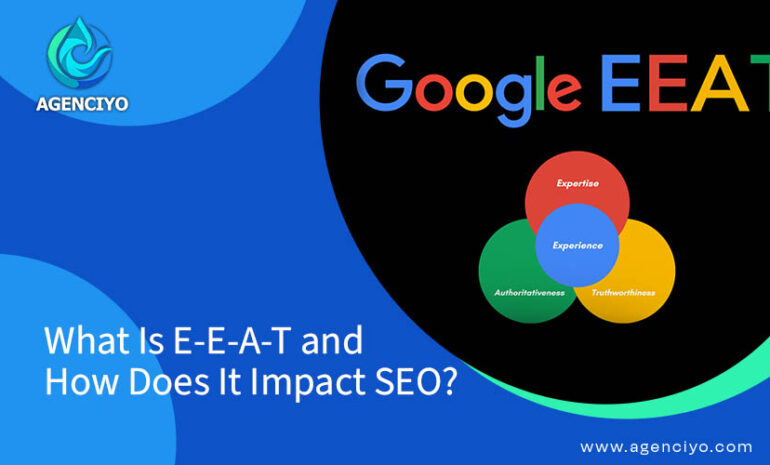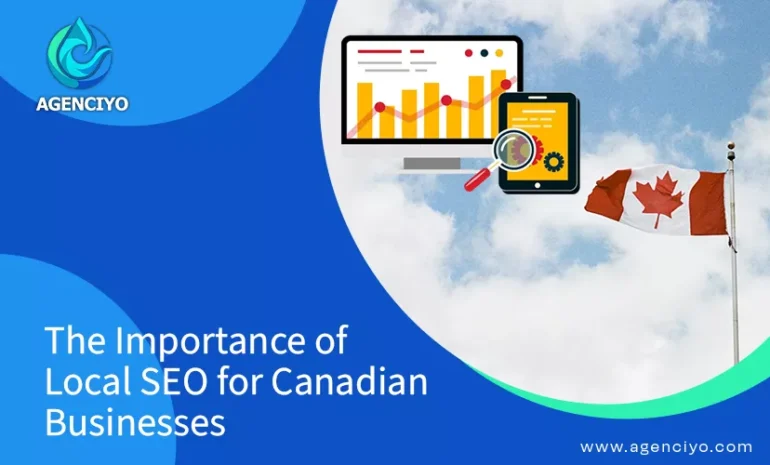SEO, or Search Engine Optimization, is the process of improving your website so that it ranks higher in search engine results like Google. When people search for something online, they usually click one of the first few links they see. SEO helps your website become one of those links.
Let’s say you own a bakery in Phoenix. If someone types “best chocolate cake in Phoenix” into Google, you’d want your bakery’s website to show up at the top. SEO is how you make that happen. It involves tweaking your content, using the right keywords, optimizing technical aspects of your site, and building trust online through other websites linking back to yours. Let’s see at Agenciyo what is SEO and how does SEO works.
Why is SEO Important?
Learning search engine optimization is a skill. Envision having a shop in a busy market but leaving the signboard outside. People would not even know what you’re selling, nor that there is a shop. That is what a site without SEO looks like, obscured from potential visitors.
SEO for beginners is critical because it:
- Makes it more visible: When your site is high on Google, more individuals see it.
- Drives free traffic: Unlike paid ads, SEO brings organic (unpaid) traffic.
- Builds credibility: People trust Google. If you appear on page 1, you’re seen as more trustworthy.
- Improves user experience: SEO encourages fast-loading, mobile-friendly, easy-to-navigate websites.
- Bring long-term results: Once you rank well, you can keep getting visitors for months without ongoing spending.
Whether you’re running a blog, an eCommerce store, or a local business, SEO can help you grow without needing a big marketing budget. To know the SEO basics is necessary.
How Does SEO (Search Engines) Work?
To understand SEO, you first need to know how search engines like Google work. They act like librarians for the internet—trying to find the most relevant and trustworthy content for every search query. Let’s see how does SEO works.
Crawling
Search engines send out tiny programs called crawlers or bots to visit websites and collect information. These bots “crawl” your web pages by following links and noting down what each page is about.
Indexing
Once crawled, the data is kept in a huge database referred to as the index. This index is essentially a virtual library where Google stores information about billions of web pages.
Ranking
When a person searches for something, Google rapidly searches its index and ranks pages according to more than 200 factors, such as relevance, authority, speed, and user experience. Search engine optimization is all about optimizing your site so that it can do well in this ranking procedure.
What are the Types of SEO
SEO has a wide scope, but it’s typically categorized into four types. Each one is essential in making your site rank higher.
On-Page SEO
This is anything you do inside your site to optimize it for search engines. On-page SEO entails:
- Crafting keyword-filled titles and headings
- Including keywords naturally in the content
- Making descriptive URLs
- Internal linking to other pages on your site
- Optimizing images with alt tags
- Making sure your website is mobile-friendly and loads quickly
For instance, if you’re creating a blog on “how to bake brownies,” mentioning that phrase in your title, URL, and beginning paragraph assists Google in realizing what your page contains.
Off-Page SEO
This addresses all the things off your site that can influence your rankings. The largest component of off-page SEO is backlinks other sites linking to yours. When quality sites link to yours, Google takes this as a vote of confidence.
Other off-page tactics are:
- Guest posting on other sites
- Getting mentioned on social media
- Listing your site in online directories
- Getting good customer reviews
The more high-quality backlinks your website gains, the more search engines will trust your site.
Technical SEO
Technical SEO helps to make it easy for search engines to crawl and read your site. It’s like establishing a strong foundation for a building.
· Critical technical SEO activities include:
· Optimizing site speed
· Repairing broken links or errors
· Generating XML sitemaps
· Having your site run via HTTPS (secure connection)
· Having mobile responsiveness
Without solid technical SEO, even the most excellent content may not rank because search engines can’t read or index your site properly.
Local SEO
Local SEO is important if your business operates in a specific location, such as a cafe, salon, or dentist’s office. It makes your website show up in local search results, like “dentist near me” or “coffee shop in downtown.”
Local SEO involves:
- Setting up or taking claim of your Google Business Profile
- Acquiring nearby reviews
- Guaranteeing your NAP (name, address, telephone number) be uniform throughout the directories
- Leveraging locally targeted keywords
What Are Keywords and Why Do They Matter?
How to do SEO is the basic key. Let’s start with the keywords. Keywords are the terms and phrases individuals search for in search engines when searching for something. For example, a person may search for “easy chicken recipes” or “cheap web design services.”
Replace generic terms with long-tail keywords such as “best noise-canceling headphones under $100” rather than just “headphones.” Don’t repeat them too often keep writing natural and informative
Keywords can be found with free or paid tools such as:
- Google Keyword Planner
- Ubersuggest
- Ahrefs
- SEMRush
- AnswerThePublic
How to Write SEO-Friendly Content
Content is at the center of SEO. Google is eager to display the most useful, relevant, and authoritative content to users.
Here’s how to write SEO-friendly content:
Understand user intent: What is the reader really looking for? Are they trying to learn, compare, or buy?
Write compelling titles: Your title should clearly tell what the page is about and make people want to click.
Use headings and subheadings: Break your content into sections (like we’ve done here).
Add images and videos: Visual content makes pages more engaging.
Link to other content: Enable readers (and search engines) to discover associated content on your site. Keep it mobile-friendly. Most people use their phones to browse, so your content has to be legible on a small screen.
Best Free Tools to Get Started with SEO
There are numerous easy-to-use tools that assist you in practicing SEO without having to pay a professional. Some must-haves are:
- Google Search Console: Check your site’s performance, errors, and indexed pages
- Google Analytics Track visitor behavior and traffic sources
- Yoast SEO (WordPress plugin) Helps optimize titles, meta descriptions, readability
- Ubersuggest Keyword suggestions, traffic data, and content ideas
- AnswerThePublic See real questions people ask related to your topic
Common SEO Mistakes to Avoid
Beginners often make a few mistakes that can hold them back. Here’s what to avoid:
· Using too many keywords (called keyword stuffing)
· Publishing duplicate content
· Ignoring mobile users
· Forgetting to update old content
· Not adding image alt text
· Neglecting page speed
· Ignoring internal linking
Focus on making your content helpful, fast, and well-structured, and you’ll already be ahead of many others.
· Quality of your content
· Strength of your backlinks
· Domain age and trust
· Keyword competition
But the best part is that if you rank well, SEO traffic can keep flowing for months even years without any additional cost.
Conclusion
We provide the best search engine optimization service. As you may look intimidating in the beginning, it’s actually all about having the best possible experience for your visitors and making it easier for search engines to understand your content. If you focus on writing useful content, using the right keywords, and improving your site’s performance, you’ll gradually start seeing results.
Whether you’re a beginner blogger, a small business owner, or just exploring the digital world, learning SEO is one of the most valuable skills you can have today.



1 Comment